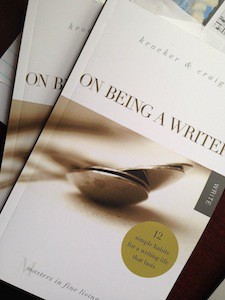Over the past several years, I’ve increasingly engaged in a risky behavior that, at times, leaves me nauseous, forgetful, and even a little jittery.
I’m talking about overusing my smart phone. Even though I know it makes me carsick, I pull it out and browse during road trips. I’m fully versed on how it affects my sleep, yet I still stream videos or scroll through Facebook in bed. And though I used to be able to read for hours and easily recall names, facts, even directions to places I’d been to only once, now I struggle to remember why I even walked into the next room.
Even so, I’ve felt little urgency to change my relationship with my smartphone until recently when I began to notice its effect on my writing.
I used to tap out first drafts in one sitting. Now, with the constant temptation of my smartphone and my diminished attention span, it takes many attempts to form even roughly crafted paragraphs. I used to draft with all of my research compiled in front of me. Now, I write with multiple browser tabs open on my laptop, while also pulling up audio files and referring to quickly drafted notes on my smartphone as I compose. I used to read more, linger over ideas longer, and let my mind make connections slowly. Now I spend even more time letting words pass in front of my face but much less time actually comprehending what I’m reading as I skim, swipe, and skim some more.
Rather than let my bad habits derail my writing life, I’ve decided to use the latest research about the negative effects of smartphone use and turn them on their head. If, like me, you’re ready to admit you have a problem with overusing your smartphone, try these smartphone-free writing tips to help you kick the habit and regain control of your writing life.
1. Get Better Sleep
If there’s one thing that would contribute to greater success in my writing life it would be a good night’s sleep. I think more clearly and work more diligently when I am well rested. By using my smartphone through bedtime (and even in bed), however, research shows I’m sabotaging any chance of quickly going to sleep and staying that way.
One solution is to power down at least one hour before bedtime. Experts also recommend keeping your smartphone out of the bedroom. Then, not only are you free of the pernicious blue light, you won’t hear those annoying notifications.
If you’re like me, you might rely on your smartphone as an alarm clock or maybe a late night note taking device for things you think of before bed and want to remember. Or maybe you don’t have a home phone, and your smartphone is your only connection to family members who may need to contact you in an emergency. How do you get better sleep if the phone has to stay?
You can still stop using your smartphone at least one hour before bed. Also, try turning off your notifications by activating do not disturb mode. As for those emergency phone calls, my smartphone allows me to tag family members’ phone numbers as “favorites” and configure my phone so their calls, but not a telemarketer’s, would ring in at night.
And be sure to keep an old-fashioned pen and pad of paper next to the bed to ensure you won’t miss out on any nighttime inspiration.
2. Work Away from the Screen
According to a September 2017 article in Atlantic Monthly, today’s American teens are more anxious, lonely, depressed, and unhappy than previous generations. And those numbers go up or down in proportion to the time they spend on their smartphones. “All screen activities are linked to less happiness, and all nonscreen activities are linked to more happiness,” writes Jean Twenge, professor of psychology at San Diego State University. “If you were going to give advice for a happy adolescence based on this survey, it would be straightforward: Put down the phone, turn off the laptop, and do something—anything—that does not involve a screen.”
It’s not just teens who are unhappy and lonely. Doing our work away from screens is increasingly more challenging for adults as well. So if you want to make yourself a happier writer, you’ll have to get creative. Start by determining which of your tasks could be done without a screen: brainstorming, researching, drafting, editing? Then give it a try for at least a week.
3. Take Screenless Breaks
Even if you can’t work away from a screen, you can at least take screenless breaks.
According to Josh Davis, director of research at the NeuroLeadership Institute in New York and author of the book Two Awesome Hours, too many of us take breaks from work that look a lot like the work itself.
“The mistake many of us are now making is when we take a break from ‘work information’ we replace it with an endless stream of information from social media or the news or whatever else is online,” Davis said. “Digital breaks don’t have an end point—you can spend hours flitting around and then you feel overloaded. Or you can stay up late, mindlessly browsing, even when you’re exhausted.”
Whether you take short, frequent breaks (with a system like the Pomodoro technique) or lengthier, less frequent breaks, give your brain and eyes a rest from the screens. In other words, don’t take a break from your laptop by scrolling through email or social media on your smartphone. Instead, take five minutes away from your laptop and phone to go for a walk around the block, switch a load of laundry (for those of us who work at home), make a cup of tea, or do some simple stretches.
4. Take Control of Your Brain
Finally, the results are mixed about whether or not smartphones actually hamper our memory. But nearly every expert agrees that smartphones are changing the way we think: We task switch in epic proportions, and lose time and attention with every shift, which leads us to make more mistakes. We’re also more distracted and respond more slowly. And even when we do remember something, we don’t trust ourselves and look up things we already know. Imagine how just these changes to our cognitive functioning affect us as a writers.
Of course we can’t blame it all on smartphones. (I’ve been giving my laptop and tablet the side eye since I read this research.) But overwhelmingly our smartphone use is the chief culprit in most of these studies. That suggests that what we do with our smartphone when we aren’t working might hinder our performance us when we are. So how do we take back control of our own brains?
Start by putting your phone out of site. One study suggested that just having your phone in sight makes you more distracted and less responsive. Also, try not looking up information you already know. As writers we need to verify our facts, but when you’re at a dinner party and someone asks a question you know the answer to, just blurt it out without pulling out your smartphone first. Or when you think you know how to get to a restaurant on the other side of town, test yourself without relying on Google Maps.
And here’s the most challenging one: stop multi-tasking (i.e. task switching) and try doing just one thing at a time. To help with that, turn off all but the essential notifications on your smartphone and other devices.
The research is clear. Our smartphones are changing the way we live and work. But by using the same data, we can retool our habits and retrain our brains for a more productive and sustainable writing life.
Photo by Osamu Kaneko, Creative Commons license via Flickr. Post by Charity Singleton Craig, co-author of On Being a Writer: 12 Simple Habits for a Writing Life that Lasts.
Explore more on the Writing Life
_______________________
Is your writing life all it can be?
Let this book act as your personal coach, to explore the writing life you already have and the writing life you wish for, and close the gap between the two.
- Grammar for a Full Life Book Club: On Becoming Less Possessive - June 16, 2021
- Grammar for a Full Life Book Club: Chilling Out on the Grammar Rules - June 9, 2021
- Grammar for a Full Life Book Club: A Passive Voice - June 2, 2021


Katie says
I put it down
Pick it up
Habitual
Over and over
Not
Even knowing why
Charity,
I couldn’t resist sharing this again (have forgotten to which prompt I first sent it)
THANK YOU for your post.
When our, now grown, teens acquired cell phones – I was thankful that when we saw the lack of sleep they were getting when they kept them in their rooms, we decided everyone had to “park” their phones downstairs overnight.
Looking forward to surfing the links you shared:)
Gratefully,
Katie